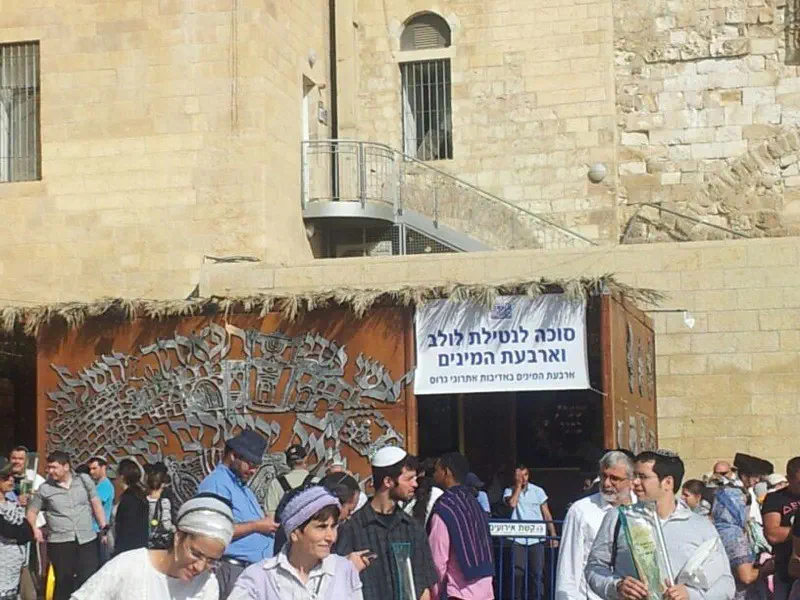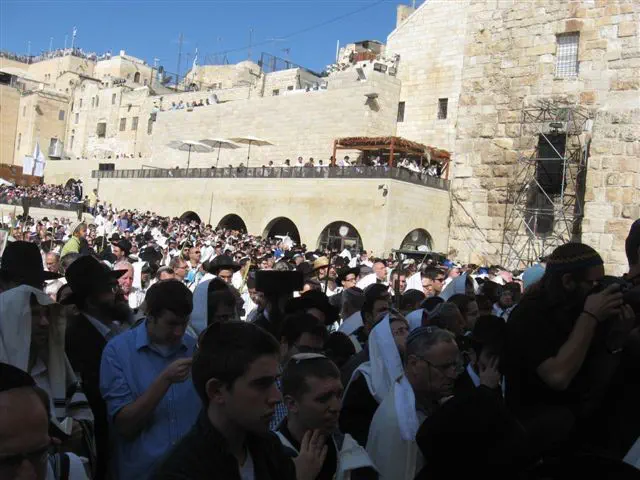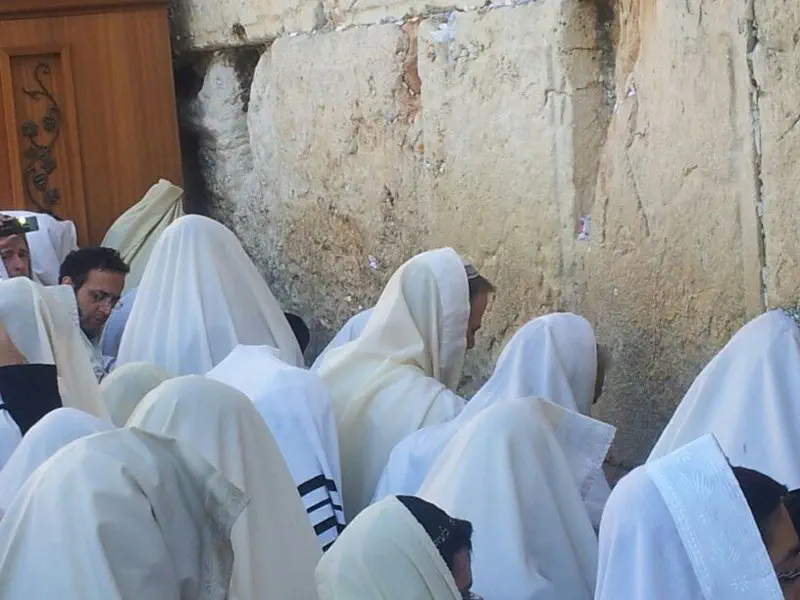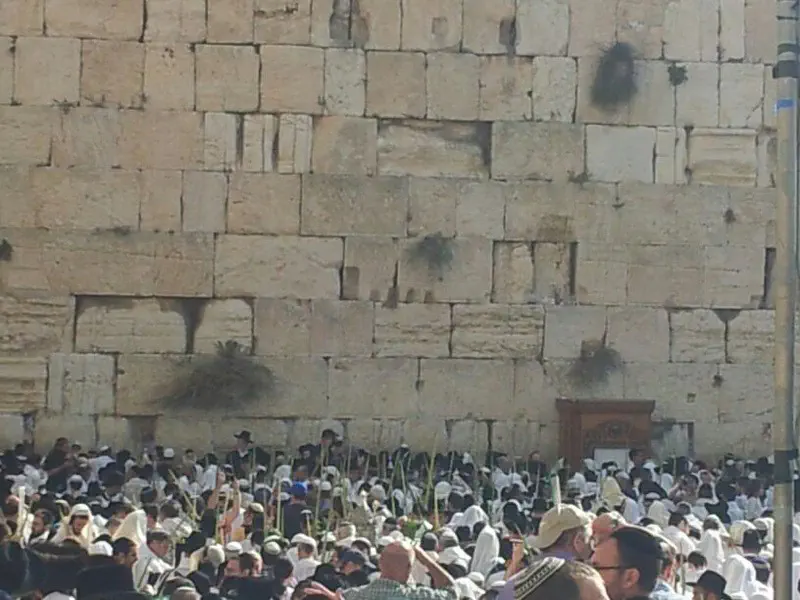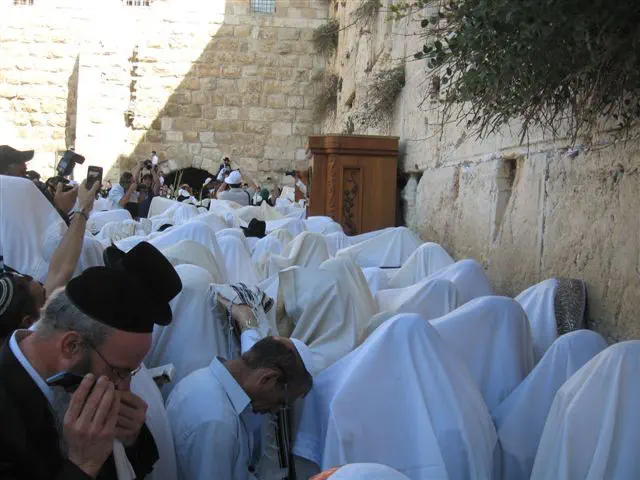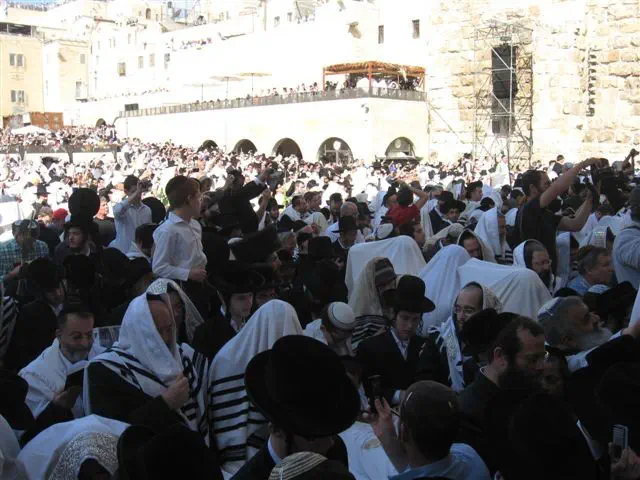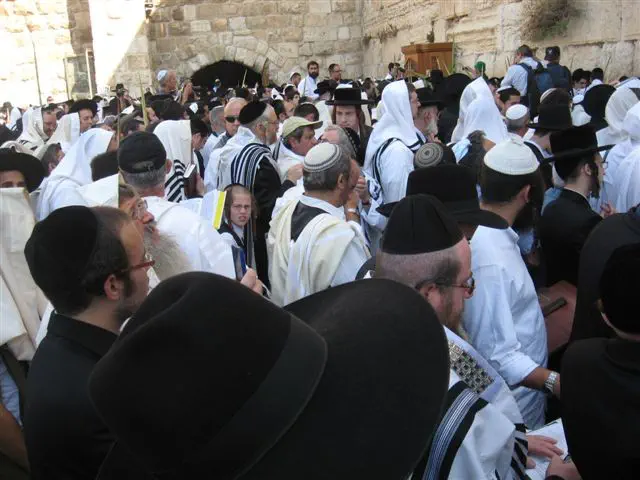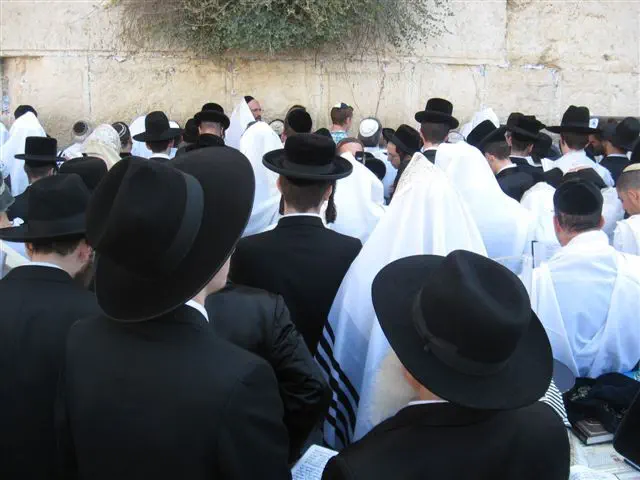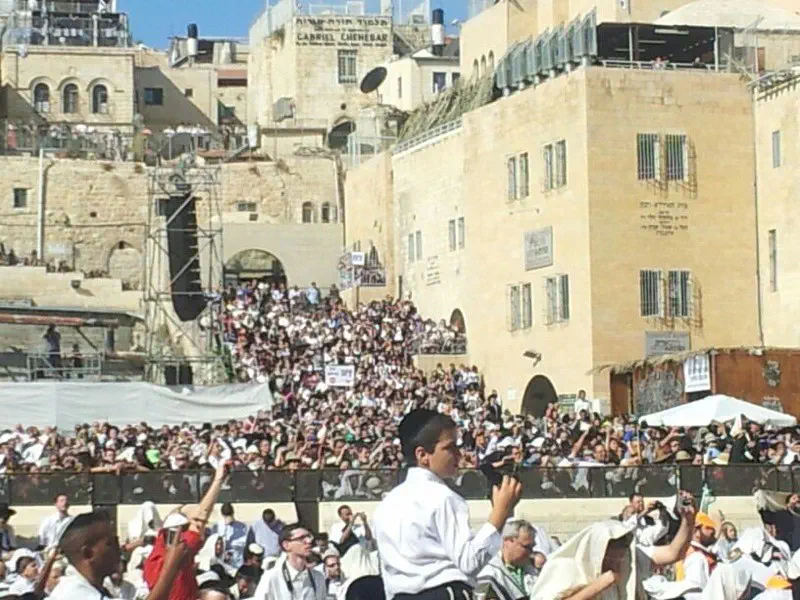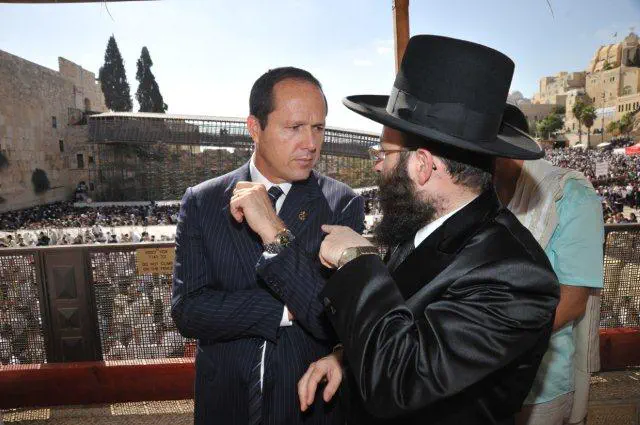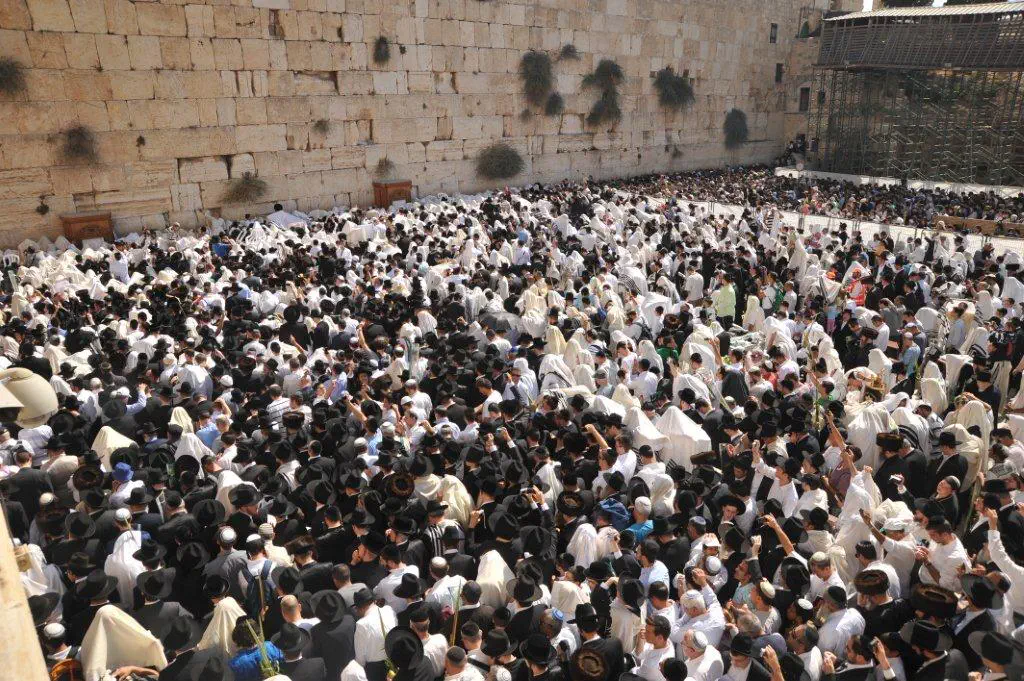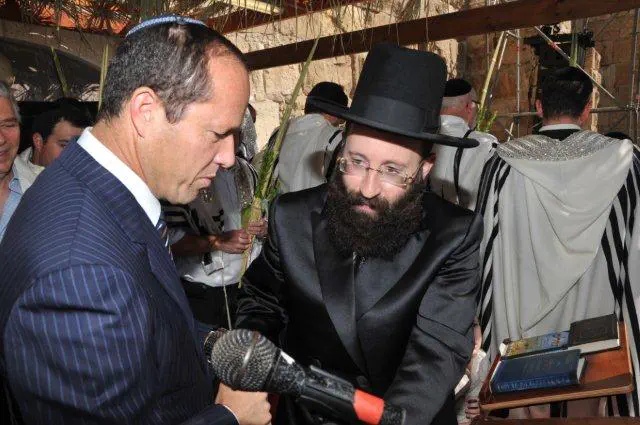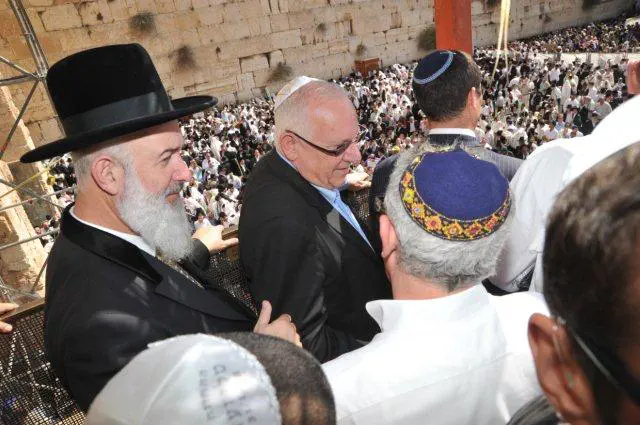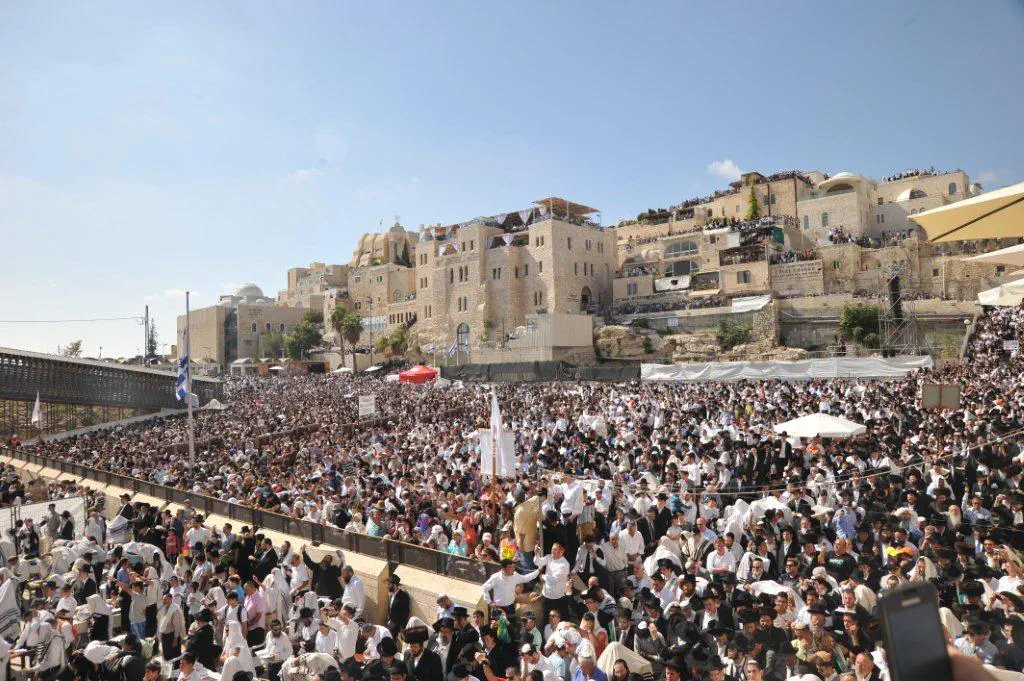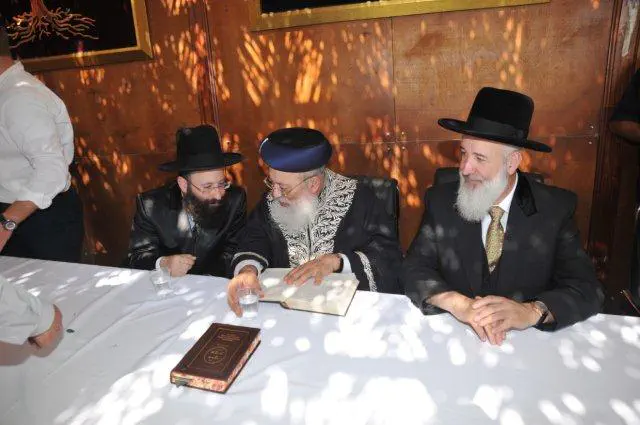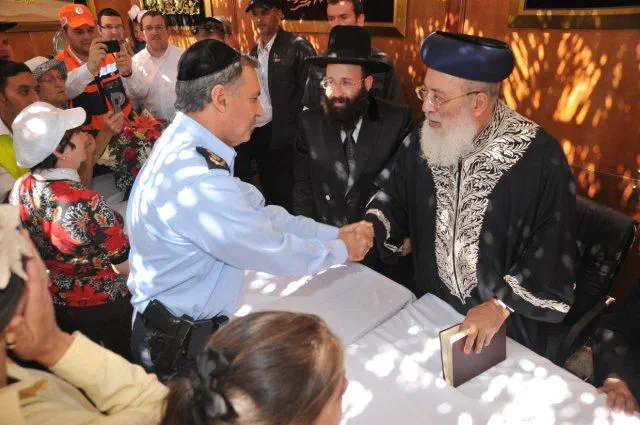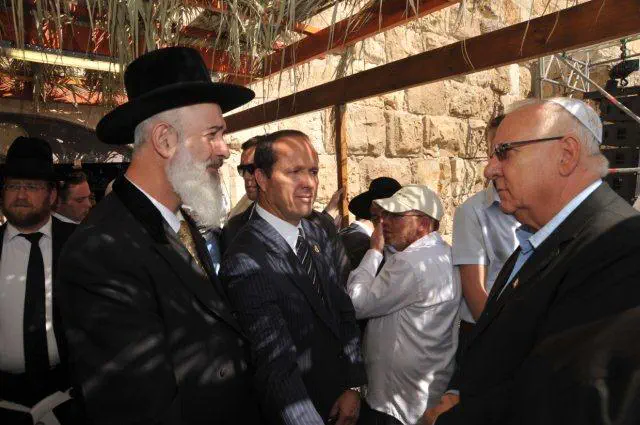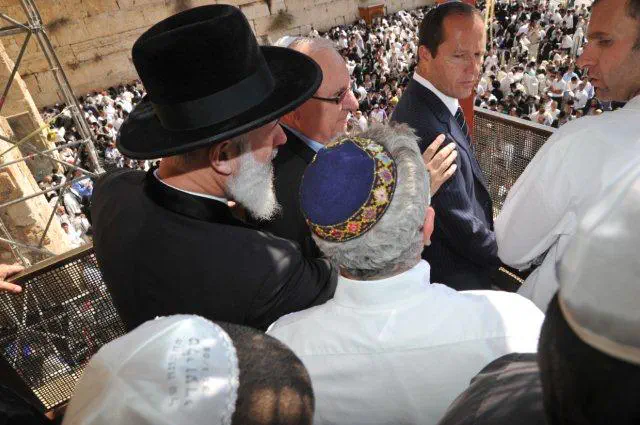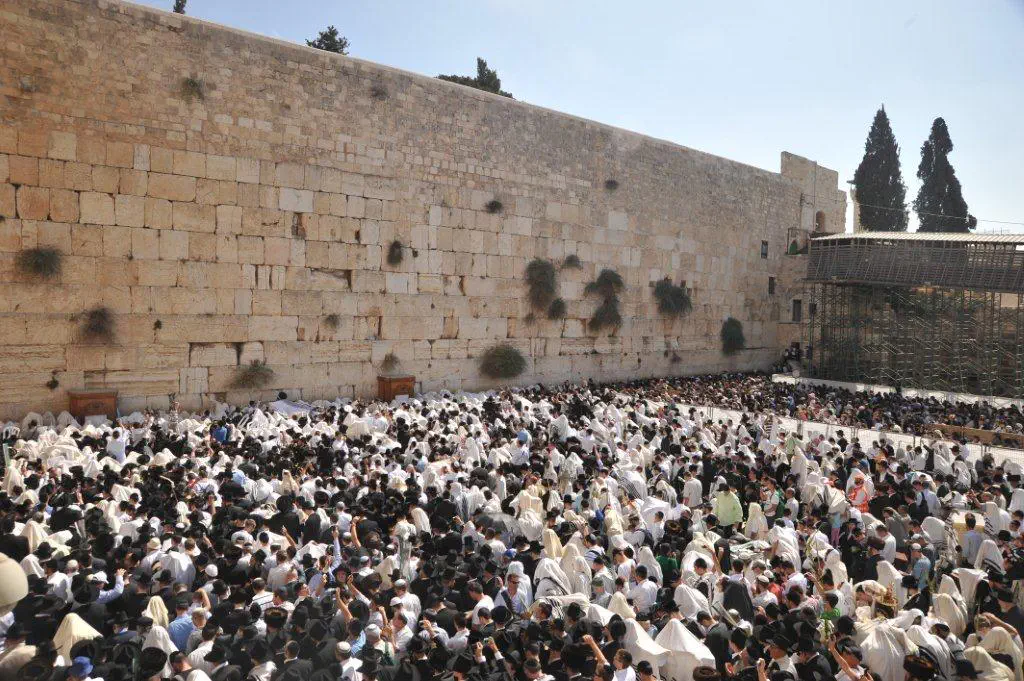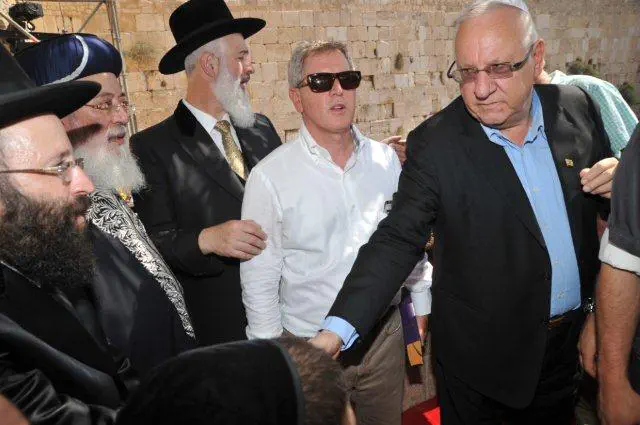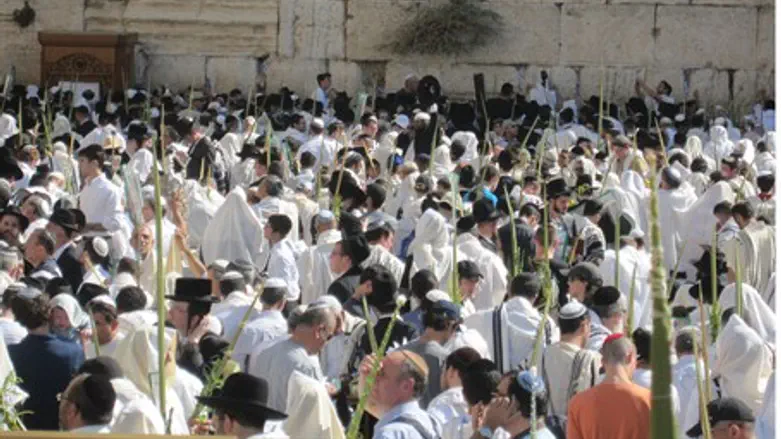
Tens of thousands attended services at the Kotel [Western Wall] on Sunday to receive the annual mass Birkhat Kohanim (priestly blessing) in Jerusalem.
Large numbers of Kohanim face the congregation to bless them as they did when the Holy Temple stood and Jews came to Jerusalem for the holiday.
What is the "priestly blessing"?
Recited silently daily by worshipers towards the end of the Silent prayer (called the Amida or Shmona Esreh prayer), the blessing's words are from the Biblical Book of Bamidbar/Numbers, where G-d commands the sons of the High Priest Aaron to bless the Jewish people, saying:
"May the Lord bless and keep you, Keep His face shining upon you and be gracious to you, May He lift His face to you and grant you peace."
Nowadays, the custom is that every day in Israel, but only during the additional service (Mussaf) added on Sukkot, Passover and Shavuot as well as the High Holydays in the Diaspora, the priests themselves bless the congregation.
During the Cantor's repetition of the Silent prayer, the priests present in the synagogue recite the blessing's words one by one, repeating the Cantor. This follows halakhic preparation in which they are assisted by Levites.
The priests face the congregation with their faces covered by prayershawls and their hands outstretched with fingers held in a special pattern handed down through the generations. The worshipers bow their heads and do not look directly at the priests, but respond with "amen" at the end of each verse.
From the 1967 reunification of Jerusalem, the mass priestly blessing has been reinstated festively at the Kotel on Sukkot.
